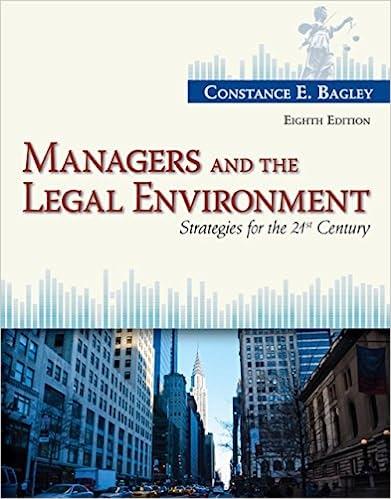In 2007, CLS Bank International filed suit against Alice Corporation seeking a declaratory judgment of noninfringement, invalidity,
Question:
In 2007, CLS Bank International filed suit against Alice Corporation seeking a declaratory judgment of noninfringement, invalidity, and unenforceability of certain Alice patents. Alice responded by filing a countersuit claiming infringement. The patents involve the "management of risk relating to specified, yet unknown, future events." More specifically, the patents involve a computerized trading platform used for financial transactions whereby a "trusted third party" verifies that the parties who have entered into a transaction are able to perform their obligations at settlement, in essence minimizing what is known as "settlement risk." (Settlement risk increases when foreign currency transactions and different time zones are involved.) The third party ensures that no events have occurred between the time the deal was executed and the time of settlement that would have resulted in one party's performing its payment obligation while the other party could not-that is, either both parties will simultaneously perform their financial obligations or neither party will. The patents incorporate methods of exchanging obligations, data-processing systems, and computer-readable media claims.
Under 35 U.S.C. § 101, there are four categories of "patent-eligible" subject matter-processes, machines, manufactures, and compositions of matter. This broad definition excludes three "judicially created exceptions"- laws of nature, natural phenomena, and abstract ideas-because allowing these basic tools of scientific and technological work to be patented would obstruct innovation.
Do the patents owned by Alice that cover system claims, method claims, and computer-readable media claims fit within one of the four subject-matter categories? If so, which ones? Do the patents fall within one of the three exceptions? If so, which ones, and why? Some corporations assert that business process patents are issued "too easily" and stifle innovation, while others have argued that applying stricter tests could make software virtually ineligible for patent protection. What factors should be considered when patenting software?
Step by Step Answer:

Managers And The Legal Environment Strategies For The 21st Century
ISBN: 9781285860374
8th Edition
Authors: Constance E. Bagley





